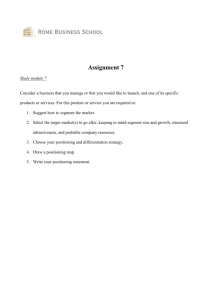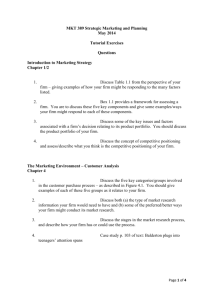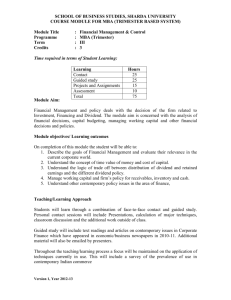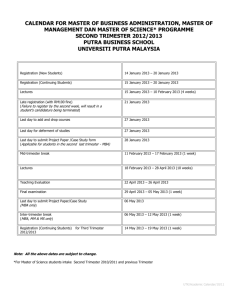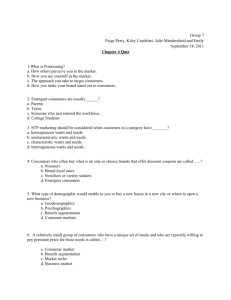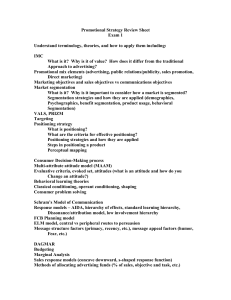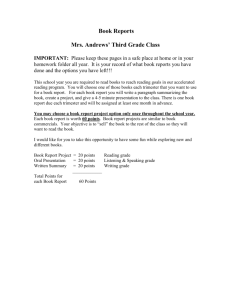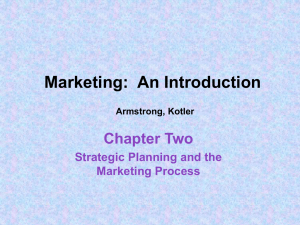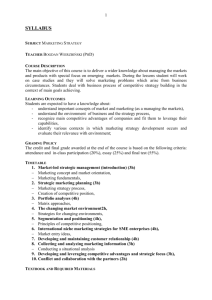- sharda mba
advertisement
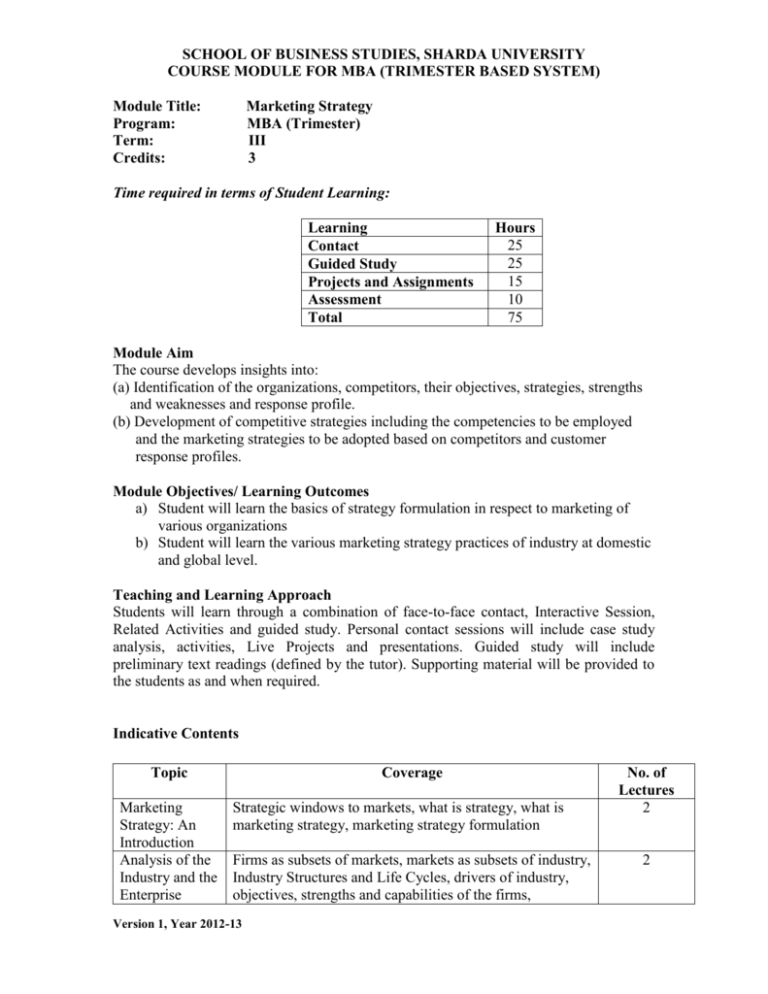
SCHOOL OF BUSINESS STUDIES, SHARDA UNIVERSITY COURSE MODULE FOR MBA (TRIMESTER BASED SYSTEM) Module Title: Program: Term: Credits: Marketing Strategy MBA (Trimester) III 3 Time required in terms of Student Learning: Learning Contact Guided Study Projects and Assignments Assessment Total Hours 25 25 15 10 75 Module Aim The course develops insights into: (a) Identification of the organizations, competitors, their objectives, strategies, strengths and weaknesses and response profile. (b) Development of competitive strategies including the competencies to be employed and the marketing strategies to be adopted based on competitors and customer response profiles. Module Objectives/ Learning Outcomes a) Student will learn the basics of strategy formulation in respect to marketing of various organizations b) Student will learn the various marketing strategy practices of industry at domestic and global level. Teaching and Learning Approach Students will learn through a combination of face-to-face contact, Interactive Session, Related Activities and guided study. Personal contact sessions will include case study analysis, activities, Live Projects and presentations. Guided study will include preliminary text readings (defined by the tutor). Supporting material will be provided to the students as and when required. Indicative Contents Topic Marketing Strategy: An Introduction Analysis of the Industry and the Enterprise Coverage Strategic windows to markets, what is strategy, what is marketing strategy, marketing strategy formulation Firms as subsets of markets, markets as subsets of industry, Industry Structures and Life Cycles, drivers of industry, objectives, strengths and capabilities of the firms, Version 1, Year 2012-13 No. of Lectures 2 2 SCHOOL OF BUSINESS STUDIES, SHARDA UNIVERSITY COURSE MODULE FOR MBA (TRIMESTER BASED SYSTEM) Analyzing Market and Competition Analyzing business environment and the customer Portfolio analysis Sustainable competitive advantages and generic strategies Segmentation, Targeting and Positioning strategies Marketing Mix Strategy Growth Strategies: Product Market Expansion Planning and Facilitating the implementation of strategies approaches to self analysis of the firm, marketing competencies and resource based view, value chain analysis Market dynamics and key success factors, market size, growth rates and profit potential at various stages of growth, measurement and forecasting, competitors and nature of competition, basis for competition, core competency, differential advantage, competitor typologies, case discussion Dynamic environment, hostile or supportive environment, SWOT, SAP, ETOP, influencing changes in environment, markets as sets of customers, customer – environment interactions, customer – firm interactions, causes and consequences of customer behavior 3 4 Product life cycle and product portfolio, portfolio model for analysis, BCG matrix, product life cycle portfolio matrix, selection of markets, GE/ Mckinsey Matrix, Directional Policy Matrix, Multi factor matrix, case discussion Competitive advantages, sustaining the advantage, market led advantage, core competencies, and associated generic strategies, low cost, focus, pre emptive strategies, differentiation strategies, product and service quality, customer focus and brand differentiation 3 Simplification of market complexity for manageability, ad hoc segmentation,. Empirical segmentation, target selection to align possibilities, objectives and capabilities, competitive positioning, corporate positioning, brand positioning, product line positioning Designing the marketing mix for strategic positioning, product strategy, pricing strategy, distribution and channel strategy, integrated marketing communications strategy, tactics and strategy, product differentiation, cost reduction strategy, case discussion Ansoff Matrix and generic strategies for growth, product development, integration strategies, diversification, entry and exit strategies, egan’s matrix 3 Strategic collaborations, partnerships and networks, from transactional management to relationships management, putting plans and strategy to implementation, barriers to implementation, post implementation 2 Version 1, Year 2012-13 2 2 2 SCHOOL OF BUSINESS STUDIES, SHARDA UNIVERSITY COURSE MODULE FOR MBA (TRIMESTER BASED SYSTEM) References: 1. Strategic Market Management, Aaker, David A. 2. Strategic Marketing Management, Richard M.S. Wilson, (Viva) 3. Strategic Marketing: An Introduction, 2000, London:Routledge 4. Strategic Marketing : Cases & Concepts John Atkinson & Ian Wilson – Addison – Wesley Longman 5. Strategic Marketing, 5e David W Cravens – Irwin Inc Version 1, Year 2012-13
